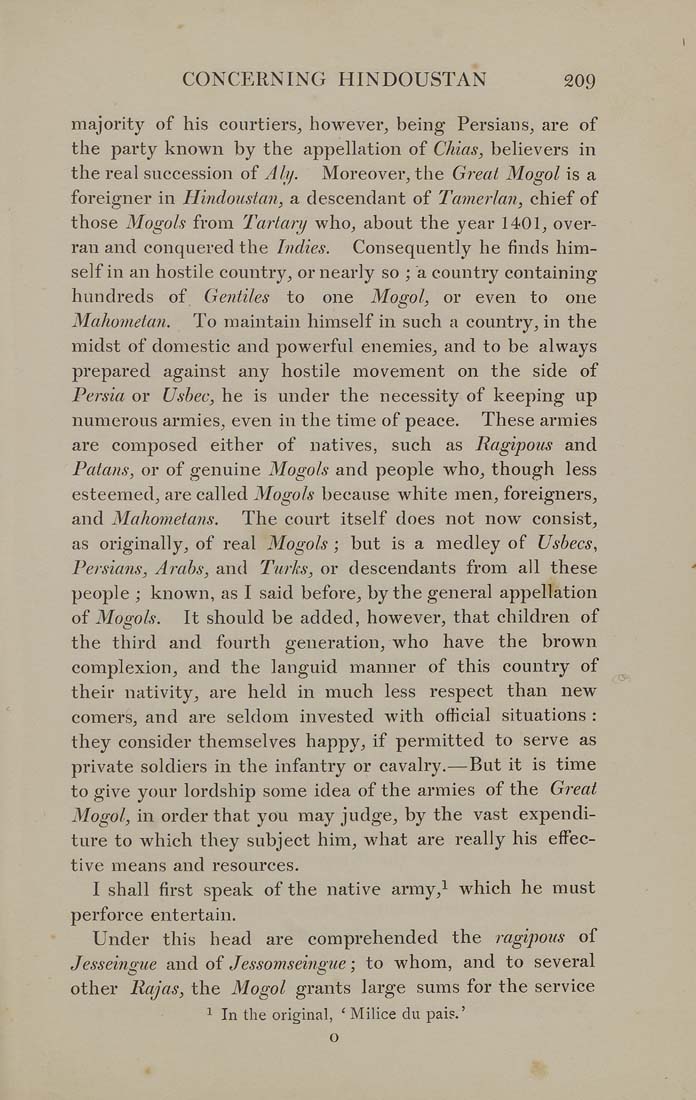CONCERNING HINDOUSTAN 209
majority of his courtiers, however, being Persians, are of
the party known by the appellation of Chias, believers in
the real succession of Aly. Moreover, the Great Mogol is a
foreigner in Hindoustan, a descendant of Tamerlan, chief of
those Mogols from Tartary who, about the year 1401, over¬
ran and conquered the Indies. Consequently he finds him¬
self in an hostile country, or nearly so ; a country containing
hundreds of Gentiles to one Mogol, or even to one
Mahometan. To maintain himself in such a country, in the
midst of domestic and powerful enemies, and to be always
prepared against any hostile movement on the side of
Pensia or Usbec, he is under the necessity of keeping up
numerous armies, even in the time of peace. These armies
are composed either of natives, such as Ragipous and
Patans, or of genuine Mogols and people who, though less
esteemed, are called Mogols because white men, foreigners,
and Mahometans. The court itself does not now consist,
as originally, of real Mogols ; but is a medley of Usbecs,
Persians, Arabs, and Turks, or descendants from all these
people ; known, as I said before, by the general appellation
ot Mogols. It should be added, however, that children of
the third and fourth generation, who have the brown
complexion, and the languid manner of this country of
their nativity, are held in much less respect than new
comers, and are seldom invested with official situations :
they consider themselves happy, if permitted to serve as
private soldiers in the infantry or cavalry.—But it is time
to give your lordship some idea of the armies of the Great
Mogol, in order that you may judge, by the vast expendi¬
ture to which they subject him, what are really his effec¬
tive means and resources.
I shall first speak of the native army,i which he must
perforce entertain.
Under this head are comprehended the ragipous of
Jesseingue and of Jessomseingue; to whom, and to several
other Rajas, the Mogol grants large sums for the service
^ In the original, 'MiUce du pais.'
o
|








